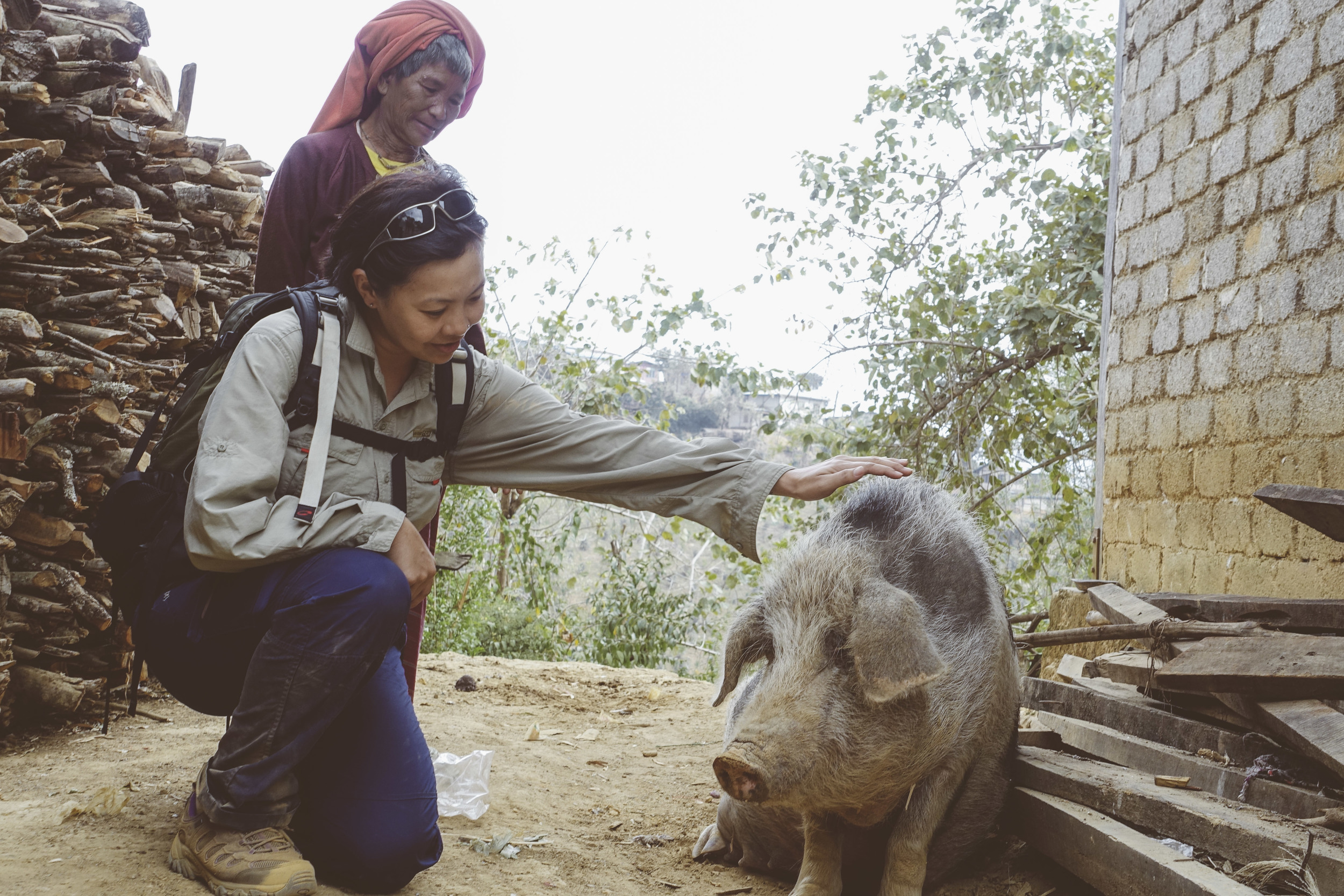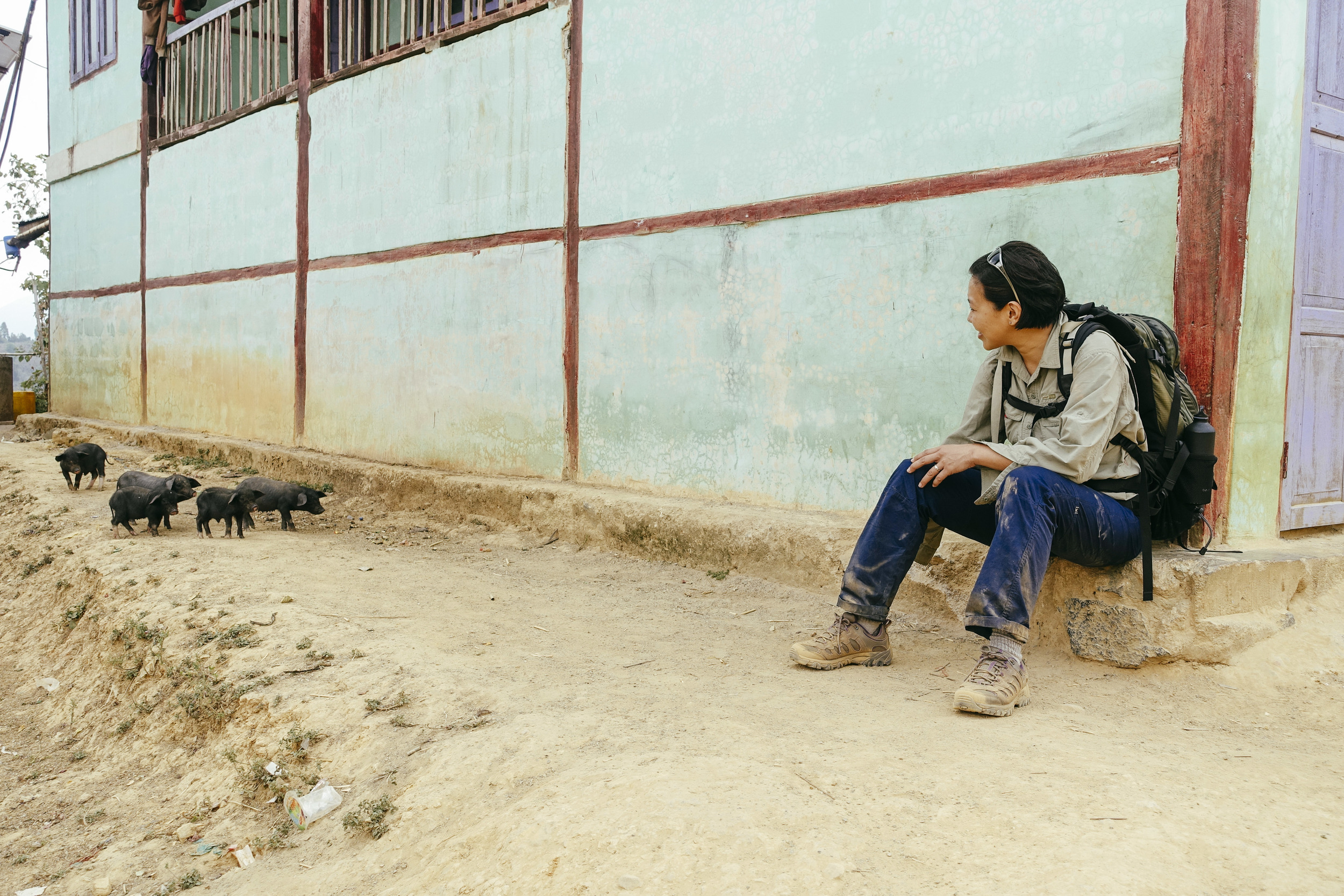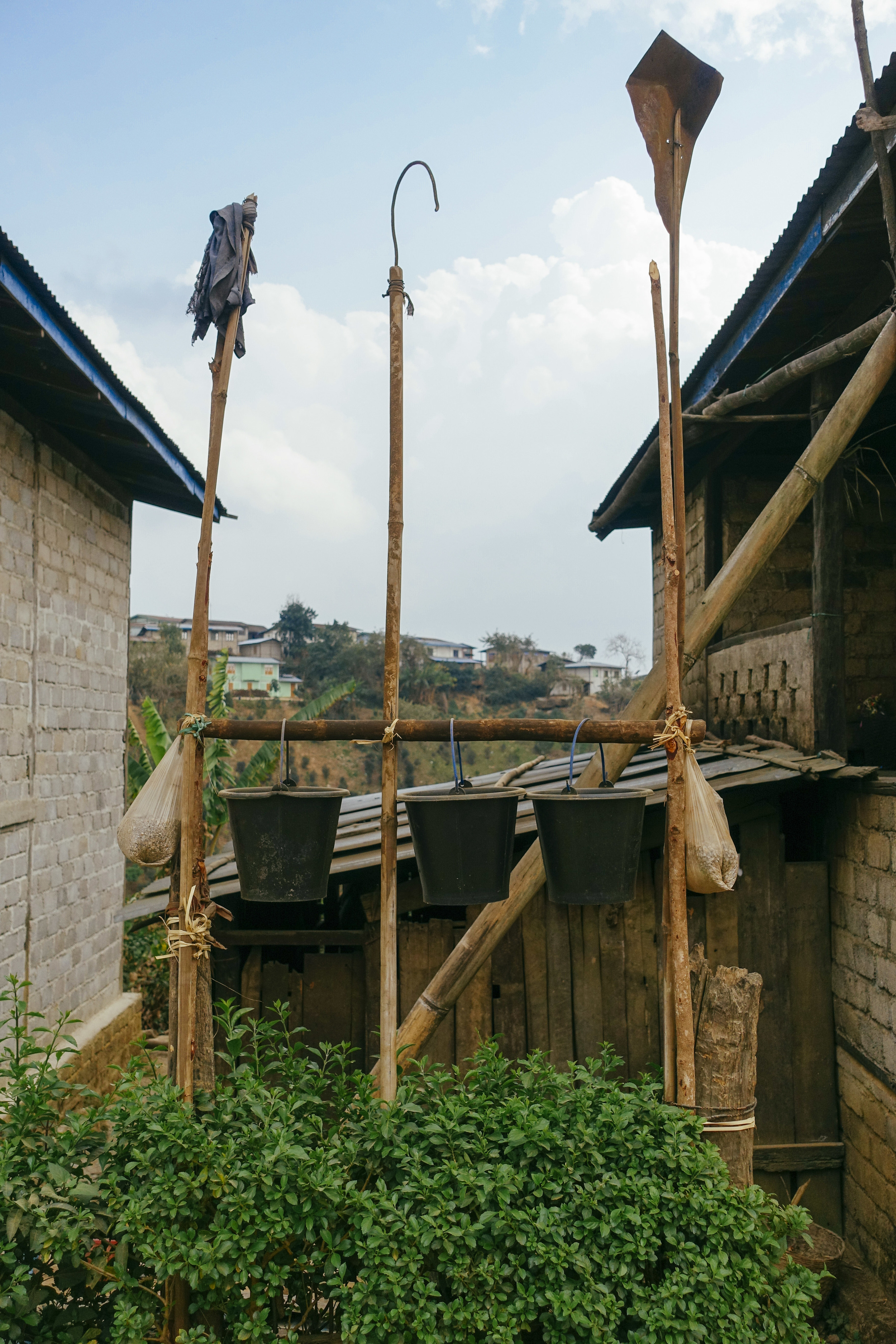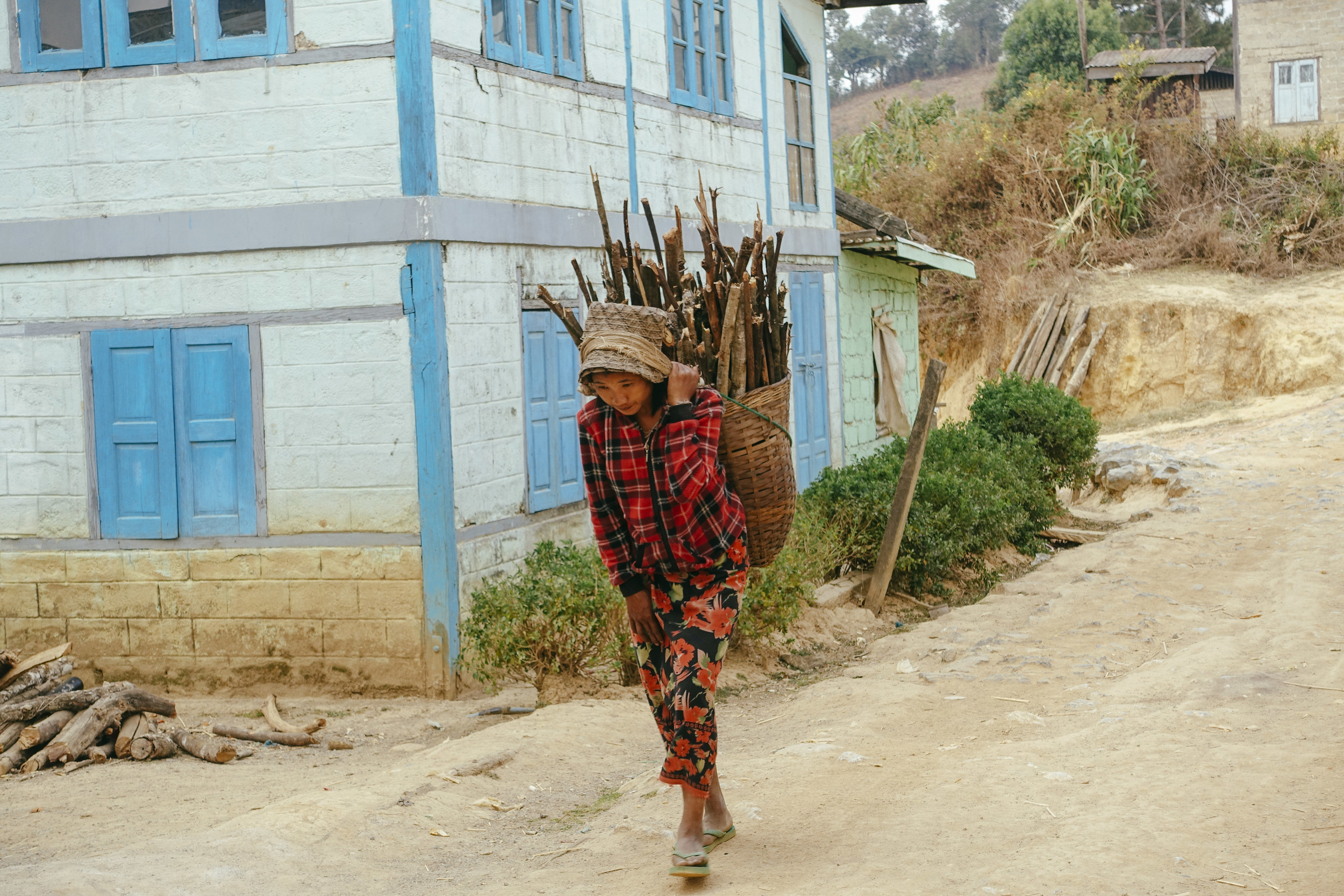trekking myanmar
3 days from kalaw to inle
21 March 2016
ON THE BEATEN TRACK
The trekking route from Kalaw* to Inle in the heart of the Shan plateau is not a secret one. It is a popular trek and one that is easily done over either two or three days. The two-day trek involves some travel by road, while the three-day one obliges trekkers to walk the 65-kilometre distance.
So, I understood from the beginning that I wasn’t embarking on a “the road less travelled” type of journey. But, I also knew that it would, nonetheless, be an adventure for me, the virgin Myanmar visitor.
Certainly, I appreciated - and always do - the rolling countryside and gentler climate; gentler than either Yangon or Singapore. Even if not terribly dissimilar from Nepal or even parts of Europe, rural Myanmar gave me an experience that was uniquely mine.
* Kalaw is a city in the Southern Shan state, situated in the eastern part of Myanmar, about 635km from Yangon and 1,320m above sea level.
It is difficult to discern where in the world this might be.
DAY ONE
Barely a half hour after we set off from our hotel, we stumbled upon a village wedding. It was immediately clear what it was. The proud and happy family members welcomed us in for a chat and photographs. They offered us food, but we politely declined.
We weren’t dressed for the occasion.
I love the vastness and quiet of the countryside. I love even more the chance encounters it offers.
We’d been walking for five hours and decided to make a short stop in a Palaw village. The Palaw people are of Mon-Khmer heritage. The women’s dress is characterised by red-striped longis (a sarong in my part of the world) and belts for the married ladies. The men wear white shirts under short jackets and black trousers.
It was here that I met a most glorious being. A sow. She was heavily pregnant and seemed to be in discomfort. I crouched down, stroked her bristly head and she responded by turning her face towards me. I could contain neither my trepidation nor elation. This was the closest I’d been to a pig.
This was my Christopher Hogwood moment.
Whoever it was who said that walking is meditation was absolutely right. But, I wonder if they were navigating train tracks at the time. The last leg of Day One’s trek consisted of an interminably long walk along that might only actually have been 5km on working train track.
We stubbed our toes over the first few hundred metres of wood, but eventually found our groove and soon were dancing from one to the other. My mind cleared out completely and all I could hear were the thud of my footsteps and the wind whistling in the trees.
Our homestay for the night was in a Danu* village called Tawunghla. We slept on the floor of the family’s cluttered living room in their elevated wooden house. Our hosts were friendly enough and, it seemed, relatively wealthy. They set up a hi-fi system, powered by a car battery, ran the wires across the room and out the one window to speakers at the ground level and proceeded to blast the one song on repeat for about three hours to a group of girls downstairs. The girls were rehearsing for a harvest festival dance competition. Outside our “bedroom” window.
*The Danu people are of Tibetan-Burmese heritage.
A corner of the living room in which we tried to sleep the night above the din.
DAY TWO
Even on a three-day trek, there is no room - it seemed to me - for leisurely walking. There is a daily minimum distance that must be covered and because this is not Nepal with guesthouses every few kilometres or so, trekkers don’t have a choice in the matter. It is the designated lunch and overnight stops or bust.
Which is a pity because few things compare to sitting under a tree on a hill or staring out across padi fields or watching buffalo graze and villagers go about their day.
Such encounters made the trek that much more perfect.
Myanmar's land is so fertile and climate so varying that most things could grow here. From tomatoes and strawberries to padi and ginger.
The second day’s trek proved a bit too arduous for us. We aren’t urban couch potatoes, but I believe no one truly grows accustomed to humid heat. We were descending slightly from the mountain ridges and rain clouds loomed.
Already behind schedule, we stopped for tea in Pinnwe, a Paoh* village in the scorching noon day heat. In spite of a frosty reception, negotiations ensued and three scooters were hired to take Marc, Kenneth our guide and me to our lunch stop, the Danu village of Konehla.
The ride saved us an hour of walking, but we lost nothing in terms of view. It’s a completely different vantage point on the back of a motorbike and no less breathtaking.
We’ll have to keep these memories in our heads because the bumpy country dirt roads made it more important for us to hold on to our pillion seats than to wield a camera.
The scooters proved to be a gem of an idea because shortly after we arrived at Konehla, our lunch stop, it poured. Apparently, the rain was a little unexpected, it being the tail-end of February, and we weren’t sure how long we’d be in the village. The dark clouds seemed to fill the sky.
Fortunately, the rain passed and we were able to resume our trek. We were quite a bit delayed by this time, but the Sun had come back out and we powered our way to our homestay for the night in Paudu, a Paoh village.
Our guide, Kenneth, explained to us that the Paoh believe they are descendants of the Sun God and that their mother is a dragon. They typically dress in black but they wear bright turbans tied in a way that resembles a dragon’s head.
Our host for the night was U Long Gee (he pronounced “gee” with a hard “G” as in “glee” or “girl”). His house was clean and spartan and the outhouse was a hundred times more serviceable than many we had encountered along the way. His charming company, and that of his wife, made theirs a 6-star accommodation.
DAY THREE
Perhaps it was the promise of a wash - the lack of running water in any of the villages made it impractical, at best, to shower - or a numbness in our feet - the toes in our shoes were bruised from the uneven terrain; whatever it was, we powered through the remainder of our trek. More green and humid than the mountains, we were travelling in the lowlands once again and in the direction of the waters of Inle Lake.
KENNETH
“Kenneth was the name that my English teacher gave me. She said it would be easy for people to remember,” says our guide whose birth name is Thet Naing Oo.
All of 23, well-spoken, smart and talented (he doubled up as cook on the trek), his future looks promising. We wish the same for his country.
Right: Kenneth saw us off safely onto a small boat that would take us to Nyaung Shwe just north of Inle Lake.
Paudu village, our last overnight rest stop of the trek.


























